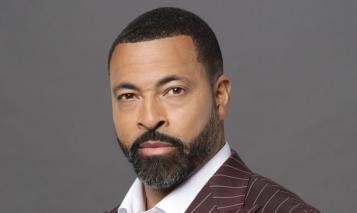
A loyal reader who asked to remain anonymous, emailed Sandrarose.com to inquire about males who have enlarged breasts. Photos in this post are used for illustration purposes only.
What Causes Gynecomastia?
Gynecomastia means increased breast tissue and swelling of breasts in males. It is triggered by a decrease in the male sex hormone testosterone in men who are middle age who older. The decrease in testosterone usually signals the beginning of male menopause. Gynecomastia typically affects 1 in 4 males age 50 and older.
Even though estrogen is a female sex hormone, males also produce a small amount of estrogen. Sex hormones control the sex characteristics in both men and women. When testosterone levels drop in men, estrogen then becomes the dominant sex hormone. Estrogen controls female characteristics such as the growth of breasts and increased temperament.
Gynecomastia usually affects males in their 50s and 60s, but male newborns and adolescent boys may also develop gynecomastia as a result of normal changes in hormone levels in the womb and during puberty.
Gynecomastia in infants: More than half of male infants are born with enlarged breasts due to the effects of the mother’s estrogen levels in the womb. Research studies have shown exposure to excess levels of estrogen in the womb may be linked to homosexuality in males later on in life.
What Medications Cause Gynecomastia?
Any medication that blocks the production of testosterone and male androgens can cause increased breast swelling in males. These medications include anti-androgens such as Aldactone (spironolactone), Proscar and Propecia (flutamide, finasteride) which are used to treat prostate enlargement, prostate cancer and other prostate conditions.
AIDS medications such as Sustiva can increase breast tissue in males who are HIV positive.
Also, alcohol and street drugs such as heroin, marijuana, ecstasy, and MDMA can cause increase breast swelling in men.
What Are the Signs and Symptoms of Gynecomastia?
Signs and symptoms of gynecomastia include:
When Should I Call My Doctor?
Contact your doctor or health care provider if you experience the following signs and symptoms in one or both breasts: swelling, pain, tenderness, redness, nipple discharge, hard, painful or non-painful lumps in armpits.
How Is Gynecomastia Treated?
Typically gynecomastia isn’t a medical problem and isn’t considered serious. But due to the embarrassment and psychological effects (depression or anxiety), some males have difficulty coping with the stress of having an increase in breast size.
If males are suffering from the psychological effects of having enlarged breasts, doctors may prescribe medication to block estrogen (such as tamoxifen), as well as testosterone replacement therapy which is very effective in older men with low testosterone. Surgery is usually the last resort when medication is ineffective.
This has been your Medical Minute.
More Info On the Web
Gynecomastia | Gynecomastia.org
Gynecomastia, symptoms, causes | Mayo Clinic
Gynecomastia (Breast Enlargement In Men) | eMedicine health
DISCLAIMER
Any medical information published on this blog is for your general information only and is not intended as a substitute for informed medical advice. You should not take any action before consulting with your personal physician or a health care provider. Sandrarose.com and its affiliates cannot be held liable for any damages incurred by following information found on this blog.





